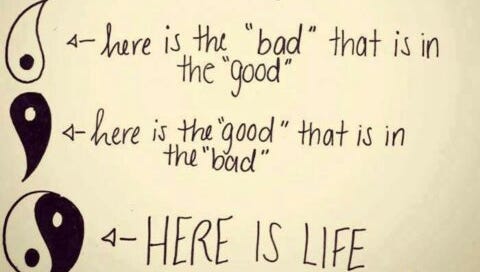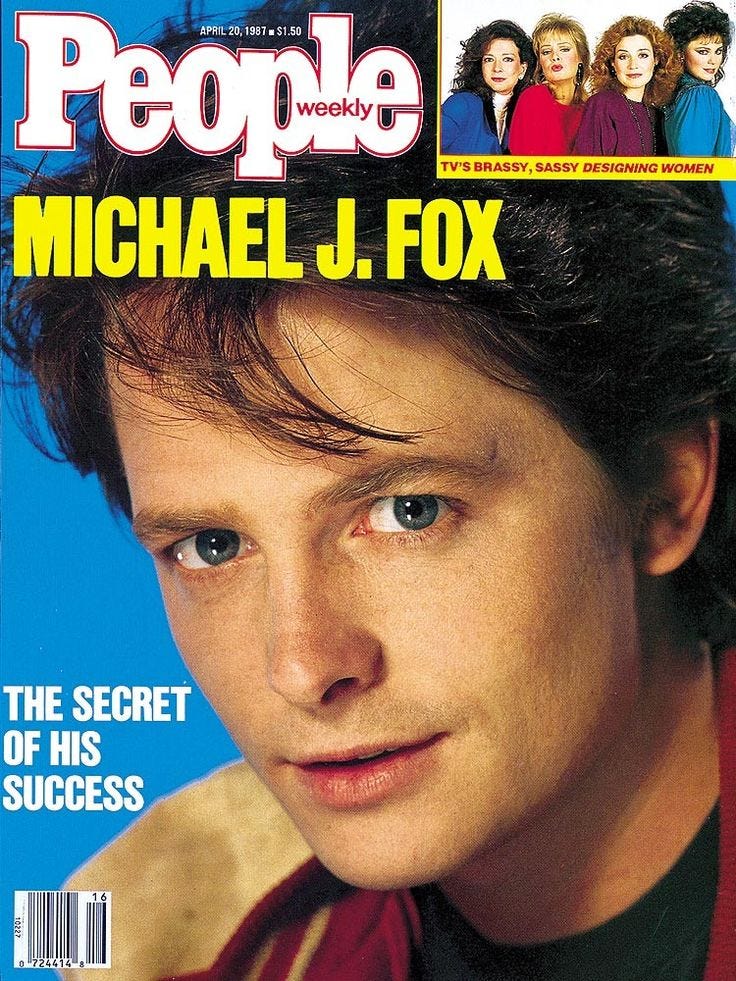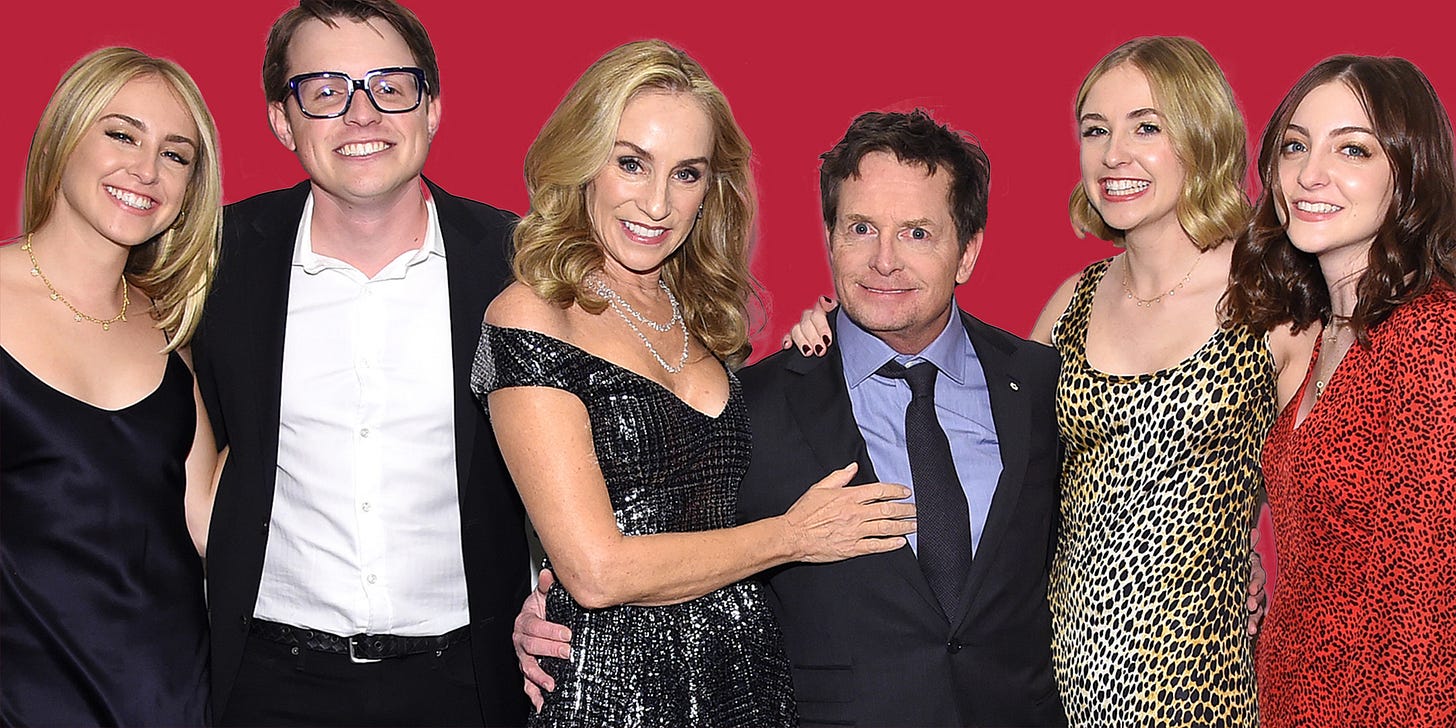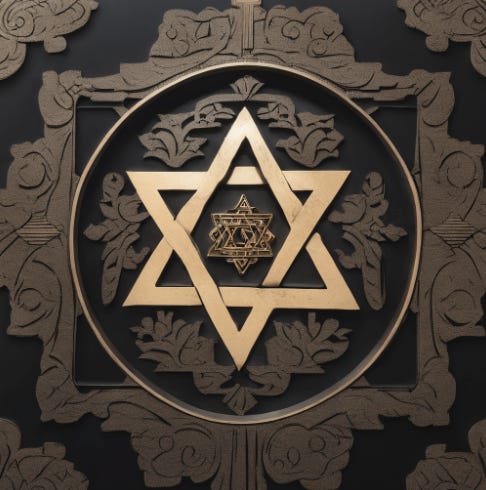“There is nothing either good or bad but thinking makes it so.”
-William Shakespeare
“I’m so glad my Dad was an alcoholic.”
James Sexton, a divorce lawyer and author recently appearing on the Lex Fridman Podcast (check out the episode here!), said this when discussing the hidden blessings in the world. His Dad was an alcoholic up until James was forty, and many of the personality traits that he exhibits are consistent with those of adult children of alcoholics. These traits, such as desire for control, are not generally looked upon favorably. However, as he sees it, he loves his life, and all of those experiences, all of those characteristics, are what makes him who he is today.
Stardom to Self-Discovery
“It was one of the great ironies of my life that only when it became virtually impossible for me to keep my body from moving would I find the peace, security, and spiritual strength to stand in one place. I couldn’t be still until I could — literally — no longer keep still.”
-Michael J. Fox
Michael J. Fox was living the high life. Struggling as an aspiring actor after dropping out of high school, he received his breakout role: Alex Keaton in Family ties. Going from selling his sectional “section by section” to make ends meet, he now had money to spare and shining in public stardom. This fame brought him to his next major role in Back to the Future. Role after role, Michael found himself playing an abundance of different characters, but was he ever playing himself?
At age 29, feeling invincible and on top of the world, Michael J. Fox’s world would be turned upside down. Diagnosed with Parkinson’s Disease at age 29, an unimaginably young age to receive such a diagnosis, Michael found himself mortal. For years and years he attempted to shield this information, causing him to enter an alcohol and drug addiction. The ultra-successful public star would spend hours on end in the bathtub wanting to keep his head below the water. He was running to escape his reality rather than embracing it.
We all now know him as the leader of the Michael J. Fox foundation, raising over $1 billion for Parkinson’s research. We know his as a celebrated humanitarian, a trail-blazer for medical research fundraising, and of course a wildly successful actor. Parkinson’s very likely saved his marriage and led him to having a wonderful family life filled with love.
For all the hardships and struggles from his Parkinson’s, Michael learned that it wasn’t a bad thing that happened to him, it simply became a part of his character. It forced him to greater explore the depths of himself, teaching him that this was not the end of him but rather a new beginning. And a beginning that he ultimately embraced wholeheartedly, finding himself in a place of stillness now that would not have come if not for Parkinson’s. A place where he found himself instead of playing someone else.
The Chinese Farmer
The idea of whether something that happens to us is lucky or not is often quite challenging to tell in the moment. For James Sexton or Michael J. Fox, they both went through major struggles that much of society would deem as unlucky. However, through acceptance they were both able to not only persevere, but use those challenges as opportunities to grow to heights unreachable if not for the hardship.
My grandmother would tell me the following story which exemplifies this idea brilliantly:
This is the story of an old Chinese farmer who lived many years ago. He had one old horse that he used to plough his fields.
One day, the horse ran away into the hills. Everyone said, “We are so sorry for your bad luck.” The old man replied, “Bad luck, good luck, who knows?”
A week later, the horse returned with a herd of wild horses, which now belonged to the old man. Everyone said, “We are so happy for your good luck!” The old man replied, “Good luck, bad luck, who knows?”
While his only son was riding one of the wild horses, he fell off and broke his leg. Everyone said, “What bad luck!” The old man replied, “Bad luck, good luck, who knows?”
One day, the army came to the village, and took all the strong young men to be soldiers for the emperor. Only the old farmer’s son was spared, because he could not fight with a broken leg. Everyone said, “What good luck!” The old man replied, “Good luck, bad luck, who knows?”
-Chinese folk tale
We should all strive to have the perspective of this farmer. Accept what happens to us and move forward without feeling the need to judge the event. Stoicism embodies this idea of perceiving without judgment; a disease or sudden riches is neither good or bad. We take what life gives us, utilizing whatever resources we can to create a fulfilling life. The external beyond our control should not be the necessary ingredient for our happiness and things that seem awful now you may come to appreciate in the future.
My Judaic Journey
“Gam zu l’tova. This too is for the good.” -Jewish Proverb
I’ve struggled with my Jewish identity all my life. In my early childhood it was thrust upon me, my life as an orthodox Jewish boy. I went to Jewish school, lived in a Jewish community, had access only to kosher food. It wasn’t even something I realized was different since that was all I knew. I was born married into this religion and practice.
As a child I began to question my faith, disconnect with some of the practices. The summers were a time when I would be the odd one out in the community and go to day camps like tennis and math camp where I would meet kids from outside the Jewish world. It would be my glimpse of what lies beyond my Jewish bubble.
After graduating from high school I went to Israel on a gap year. Over that year I felt my Judaic faith and practice waning, but in my independence I saw something else: my Jewish identity growing. I felt connecting with many of the traditions and the community, parts of the religion I’ve come to cherish.
In college I found my ongoing struggle with my Judaism heighten. Not surrounded by the aura of Jewish identity that Israel provided, I found myself divorcing from the Orthodox Jewish community on campus. I found people with other hobbies and values that felt more genuinely aligned with me, and once again was lost in where I saw my Jewish identity.
At many points I’ve looked at my Orthodox Jewish upbringing as misfortune. After all, I no longer practice much and have struggled with it for all my life. However, I’ve come to take the wisdom of the Chinese farmer with me; that my Jewish identity is not good or bad, but it is a critical part of who I am. I’ve come to recognize all the wonderful things that it has brought: family, community, spirituality, and a tremendous value system. I do not want to wish that all away for I am forever grateful for how Judaism has helped shape who I am today. Good luck, bad luck, know knows?






